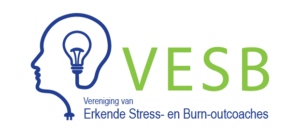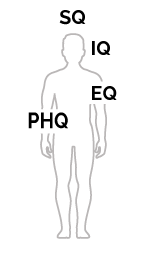You are here: Stress & Burn-out Coaching » Stress

Stress forms an intrinsic part of life. Our (primary) brain is focused on survival: eat or be eaten (fight, flight or freeze). Our ancestors still fought sabre-tooth tigers, whereas we get startled when crossing the road because a car blows its horn.
We need these stress hormones just to survive. Thus stress is an essential part of our lives. We shouldn’t eliminate or reduce stress, but we need to integrate it into our lives.
Our body produces ‘recovery hormones’ which help us to regain our balance after a short and acute moment of stress. Our body needs a moment of rest so that we can recover.
But what if the stress doesn’t stop and we can’t incorporate recovery moments anymore? Our body and mind become exhausted and stress becomes ‘toxic’. Result: our immune system, which normally protects us, weakens. We can no longer put things into perspective, so our primary (survival)brain takes over and says ‘stop’! In other words: we become ill.
Or better: our workload (the amount of stress) has become bigger than our capacity (that which we can cope with).
(bron: Geestelijk Gezond Vlaanderen)
Theo Compernolle (neuro psychiatrist) distinguishes 3 types of brain in his book ‘Brain Chains’ (highly recommended literature!)
In general you could say that there is a problem on one or more of our 4 intelligence levels when dealing with stress & burn-out:
Human ‘imbalance’ is situated on one or more levels, for example:
During the coaching process the idea is obviously to strengthen and harmonise the 4 intelligence levels.
Recommended reading:
Back to overview: Stress & Burn-out Coaching
We deliberately choose to organise the coaching sessions at our coaching facilities located in a peaceful and green environment, right next to the river Scheldt.
This creates inner peace and leads to deeper concentration and thus has more impact.
The coaching sessions take place
Before, after or during the coaching session the coachee can use our Ikigai Reflection Room, Wi-Fi and drinks included.
’Ikigai’ is a Japanese concept, meaning ‘Reason for being’ or ‘Purpose’.